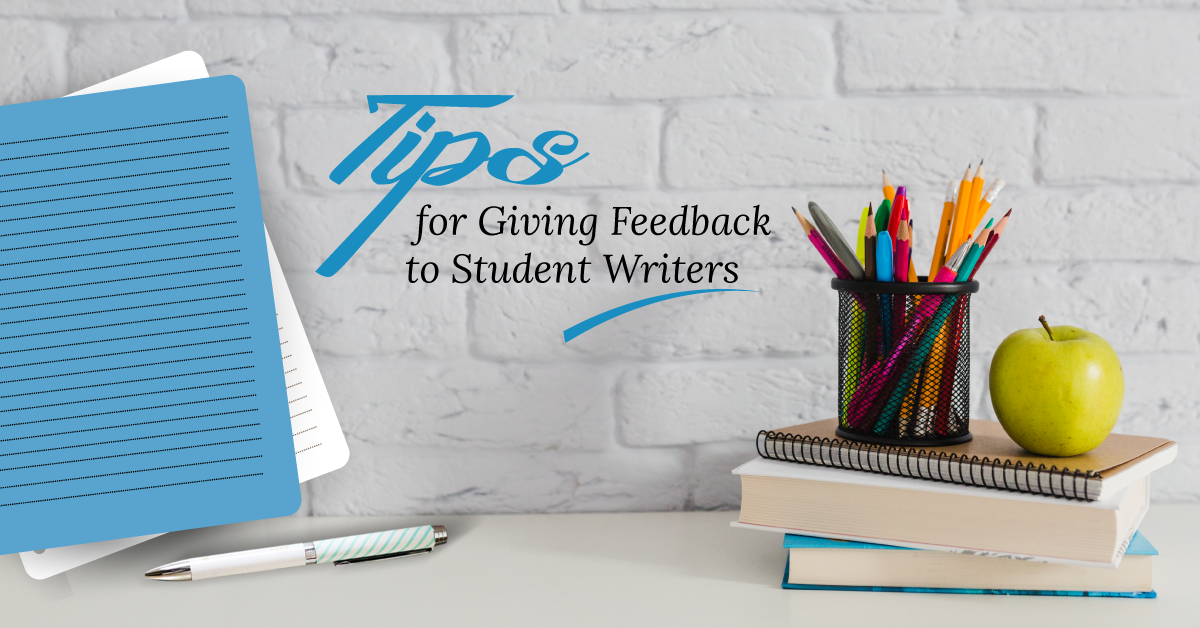Tips for Giving Feedback to Student Playwrights
Nick Pappas wears many hats. He is a playwright, a director, he teaches and he’s a dramaturg. This conversation took place at the International Thespian Festival where for the past five years he’s worked with student playwrights. How do you give student playwrights feedback? Here are the highlights from the full podcast.
Be honest with your students.
Nick says, I try to tell students very, very flatly, “I’m sorry. You’re not going to change the world with your play or anything. Nobody is going to change the entire world.” Everyone seems a little disheartened but then I kind of pop into, “ But, you can change one person’s world. You can change one person’s mood.
One person is going to see this and they’re going to feel better. They’re going to laugh when they’ve had the worst day of their lives. That one life is going to change.” That’s doable.
Let your students know where you stand and what you can do.
Nick explains to his students, “I’m there for the play – to help you create what you want to create.” I really try to make it very clear that I am there to help them and no way do I want to write the play myself. It’s a good reminder that I’m on their side.
Encourage students to accept that the first draft is going to be bad.
Nick says, “it’s going to suck and that’s all there is to it. But the point is that you’ve gotten a first draft and only after you’ve gotten the first, I always say, only after you finish the first draft can you actually start writing because, otherwise, it’s like this weird mishmash of ideas in your head that you sort of like vomit out onto a page to see what you even really have in the first place.”
Make sure you understand a student writer’s intention.
Nick explains, I know, as a writer, I love when someone says it back to me like, “So, I read it and this is what I’m seeing. This is what I think the play’s about. Is that congruent with what you’re thinking?”
Help your students learn to try new directions in their writing, even if they don’t work.
With his students, Nick always tries to make it very clear that his feedback doesn’t necessarily have to be accepted in its entirety, but he asks that the student gives it a try.
If they try something and it doesn’t work, the writer has learned forever that it doesn’t work and you have to go in a different direction.
Don’t focus on the negative.
When we focus on the negative, we tend to miss the overall picture of things. It’s not exactly focusing on the positive either. It’s focusing on moments that are striking, exciting – those kinds of things that just sort of stick to your guts and won’t let you go, those images that feel really strong and beautiful, those moments, those single lines of dialogue where it’s like, “Yes, this is it! This is the place where you’re supposed to be for this particular show.”
If writers focus on these moments that feel right and are working, they will start to identify what areas need to work to ensure that more moments that work the same way. They can ask themselves, ‘is this working the same way?’
Feedback Form Exercise.
A great exercise for students is to have them create their own feedback form for readers.
When asking for feedback on a draft the playwright has to be specific. They can’t just say “tell me what you think!” That can be overwhelming and paralyzing for a reader.
There is two parts creating the Feedback Form. In Part One, the playwrights does two things:
1. Lets the respondent know where they (the playwright) are with the draft.
2. Give the respondent a job.
That is going to give some context for the respondent. First: where is the playwright? What are they thinking?
If the respondent knows the playwright is struggling, that they didn’t have a good time with the first draft, that’s a much different context than “I feel really good about this draft.” Second what does the playwright specifically want the respondent to look at – do you connect to the main character all the way through the play? That’s a specific element for a respondent to look at rather than – do you like the play?
In Part Two the playwright is going to ask for two things: Impressions and questions.
Ask for Impressions, meaning what stayed with the reader, rather than asking the reader for what they “liked.” Impressions tell a playwright what resonates. It could be a line, an image, a character a moment. We want our work to stay with an audience after the curtain comes down.
Student writers also want to ask for questions rather than for negative comments. Questions are tangible. They can be answered. They let a playwright know if there’s confusion or if an intention is unclear. Always include questions in your feedback sessions.



